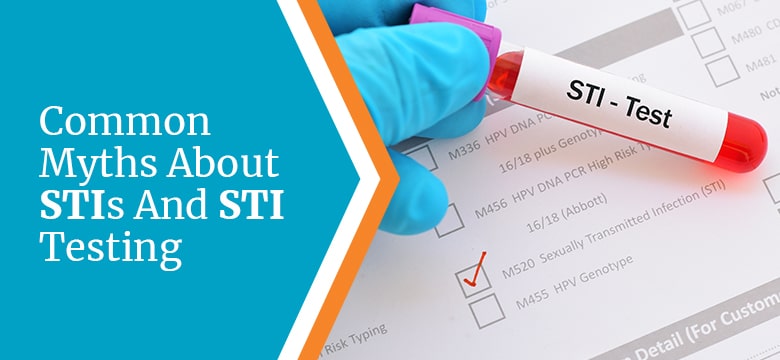
STIs affect many sexually active persons. Although STIs are common, many people know little or nothing about them. This has caused a high circulation of untrue information about STIs. Separating the facts from myths helps you protect yourself from STIs.
In most cases, you can know if you or your partner has an STI because symptoms may not occur. Symptoms such as discharge, lumps, or a rash may be present when you have an STI, but many people do not show symptoms when infected.
Some STIs like chlamydia and syphilis can remain in the body for several months or years without showing symptoms. Being asymptomatic doesn’t mean you are safe. Ensure you get tested if you haven’t tested for STI in the last year or have a new sex partner.
This is untrue. Many STIs may not show symptoms, but they are harmful to your health. STIs, such as chlamydia, can cause issues in male and female reproductive systems. Pelvic inflammatory disease and infertility can also occur when STIs remain in your body for long, even without symptoms.
Most STI tests require urine or blood testing. Even when a swab test is necessary because you have symptoms, you have nothing to worry about as this is mildly invasive, not painful. A swab is only a little bigger than a cotton bud.
Some common STIs like chlamydia and syphilis require antibiotic treatment, but some require management and treatment throughout your life. STDs such as HIV and herpes will always remain in the body. Although gonorrhoea is treatable, the newest strain has no cure.
While having several sex partners can increase your risk of getting STIs, contracting STIs is possible even with one sexual partner or after one sexual encounter.
Anytime you have a new sex partner, ensure you communicate about your sexual health history. You and your partner also need STI testing before you start having sex to ensure no one gives the other person an STI.
The risk of transmitting an STI through vaginal and anal sex is higher, but some infections such as chlamydia and gonorrhoea can affect the throat and be passed during oral sex.
Syphilis was more common throughout the 15th century, especially in France and Italy, but it is still common. A 20% increase in the cases of diagnosed syphilis has occurred in the UK within the past ten years.
STIs are more common in younger people, but anyone can contract an STI or STD regardless of age. In the past ten years, the number of STI diagnoses in older people between 50 and 70 years has increased.
You can contract the same STI several times if you contact it during unprotected sex.
Many STIs and STDs present flu-like symptoms such as nausea, vomiting, fever, and fatigue in the early stages. Other common non-specific STI symptoms are joint pain, back pain, headaches, and water infections.
STI testing isn’t shameful, so you shouldn’t feel embarrassed when getting STI tests. On the contrary, getting an STI test is caring for your health to improve and maintain your quality of life.
Don’t let these myths discourage you from getting tested for STIs. You can visit Private Doctor London today for your STI test. Feel free to get in touch with us on 020 7183 2792 to book an appointment for your STI testing.